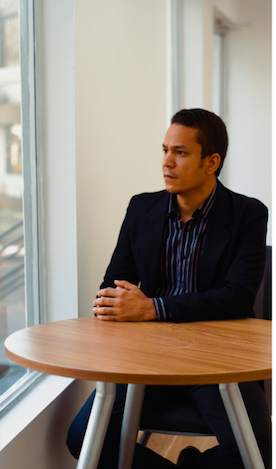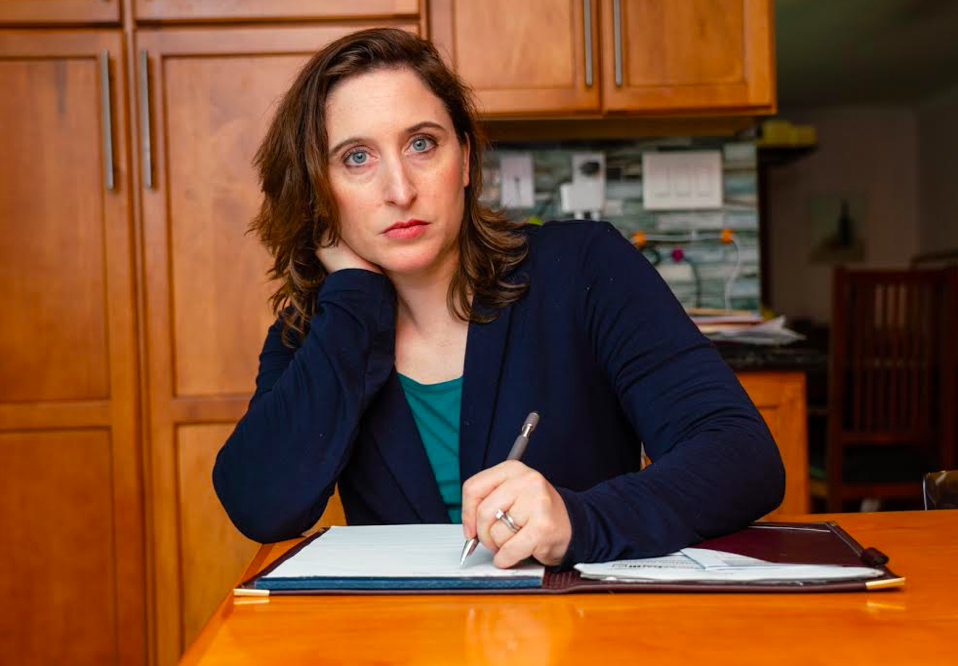Jill Katz
One to Zen Organizing
March 10, 2021
I grew up in New York City (a Queens girl, born and bred). The culture there taught me to always move. If you stop on the street in Manhattan (“The City”), you will most certainly be overrun by people who will yell at you.

Then I moved to a suburb in Maryland. Life did not move quite as fast but I still carried with me the idea of being a “mover and a shaker.” I continued to believe that being busy is the same as being productive. So if I was not active every moment then I was not using my time wisely.
Yet as I got older, something in me shifted. I had children and one of them had ADHD. I got into yoga. I started working with adults who had ADHD, OCD, and other brain-based conditions associated withchronic disorganization. I learned to stop and breathe. Amidst all these life changes, I realized that in order to create consistent organization and productivity, we need to pause and reflect. We need to stop and consider events happening around us and how they affect us both physically and mentally. We need to question our choices to see what is working or not working. Finally, we need to use this data to plan and strategize new choices . And that is the power of “The Pause.”
CHRONIC DISORGANIZATION & THE PAUSE
The Pause is beneficial to all but particularly vital to those with chronic disorganization. When my daughter was diagnosed with ADHD, I was told that I needed to help her with “executive functioning.” Naturally, I read up on this new term and discovered that my daughter is “neurodiverse” --- her brain thinks differently than the average non-ADHD brain. Her brain has trouble intuitively learning the cognitive processes required to plan, including the ability to organize and to manage time.(Executive Skills in Children and Adolescents, Third Edition: A Practical Guide to Assessment and Intervention By Peg Dawson, Ed.D, and Richard Guare, Ph.D)
 One important component of executive functioning is known as Metacognition: The ability to stand back and take a bird’s-eye view of oneself in a situation in order to develop critical thinking, decision making and problem solving skills. This part of executive functioning is difficult for the average person but is particularly challenging for someone with ADHD. When you have ADHD you are concerned with the “right now.” So once an event occurs the ADHD brain is rushing onto the next task (the new “right now”) with no regard for the past or future. Without stopping to reflect on events, the ADHD brain is not exercising metacognition and has trouble changing future outcomes.
One important component of executive functioning is known as Metacognition: The ability to stand back and take a bird’s-eye view of oneself in a situation in order to develop critical thinking, decision making and problem solving skills. This part of executive functioning is difficult for the average person but is particularly challenging for someone with ADHD. When you have ADHD you are concerned with the “right now.” So once an event occurs the ADHD brain is rushing onto the next task (the new “right now”) with no regard for the past or future. Without stopping to reflect on events, the ADHD brain is not exercising metacognition and has trouble changing future outcomes.
Consider this: Theresa is an ADHD woman who has a 10am coffee date with a friend. She goes about her morning and then suddenly realizes that she is running late for her appointment. She hurries as fast as she can and makes it to the coffee shop 30 minutes late. Theresa’s friend is annoyed at having waited and is angry with Theresa. Theresa impatiently waits for her friend to finish her tirade, shrugs it off, and quickly moves on to the task of choosing a delicious cafe concoction. The next time she schedules an appointment, she is likely to be late again.
Now consider a different scenario. Theresa is, again, late for her coffee date. However, after she arrives, instead of shrugging off her tardiness, Theresa pauses and sits in the discomfort of knowing that her actions had a negative result. At the most basic level, Theresa realizes she feels bad and doesn't want a repeat performance of this feeling. Pausing to feel lousy results in metacognition. This self reflection will propel Theresa to strategize and try to change her behavior. Similarly, if she pauses when she feels good, she will be motivated to replicate that positive behavior. Of course, it might take Theresa many times and some experimentation to figure out how to improve, but "The Pause” is the first critical step in creating positive change.
“Science tells us that by taking time to pause and pay attention to the thought or emotion, and then to name it, you diminish its emotional power over you. It gives you the ability to observe it rather than be consumed by it. Name it, and you tame it.”
https://addca.com/adhd-coach-training/ADHD-Blog-Details/the_seven_big_benefits_of_pausing_for_people_with_adhd/
ANXIETY, OCD & THE PAUSE
Those with Anxiety and OCD can also draw huge benefits by exercising “The Pause”. When a therapist works with a person with OCD or high anxiety, the therapist often recommends Cognitive Behavioral Therapy or CBT. Here’s how it works. A person with OCD or anxiety experiences an event that triggers their anxiety. The person will immediately try to lower their anxiety by either avoiding the trigger or performing a series of compulsions. The premise of CBT is that although a person experiences an initial uptick of anxiety, if the person sits with the anxiety, it will reach its peak and then abate.
 For example, Daniel is a man with OCD who is nervous that something bad will happen to his house. When he leaves his house (the trigger), Daniel experiences a high level of anxiety. He normally performs a series of rituals -- tapping his feet 7 times and locking and unlocking the door 3 times -- in order to combat his anxiety. With CBT, Daniel still experiences an uptick of anxiety when he leaves his home. However, instead of turning to his compulsions, he pauses and rides out his anxiety, which will initially increase and then slowly decrease to a manageable level. With a therapist’s guidance, Daniel can learn to live with his OCD and anxiety. However, without “The Pause,” he will never learn to redirect his intrusive or anxious thoughts.
For example, Daniel is a man with OCD who is nervous that something bad will happen to his house. When he leaves his house (the trigger), Daniel experiences a high level of anxiety. He normally performs a series of rituals -- tapping his feet 7 times and locking and unlocking the door 3 times -- in order to combat his anxiety. With CBT, Daniel still experiences an uptick of anxiety when he leaves his home. However, instead of turning to his compulsions, he pauses and rides out his anxiety, which will initially increase and then slowly decrease to a manageable level. With a therapist’s guidance, Daniel can learn to live with his OCD and anxiety. However, without “The Pause,” he will never learn to redirect his intrusive or anxious thoughts.
ORGANIZING & THE PAUSE
Pausing has transformed the way I organize for myself and others, and not only  those with chronic disorganization.Sometimes I am working with a client and we need to stop for a minute as I consider the next step in our process. I used to worry that the client would think that I was wasting time. Now I recognize the value of taking that moment--doing so. That moment often yields some brilliant ideas (if I do say so myself!). Other times I pause because the client needs time to process something we have done togetherour session. He or she might be giving away an item that belonged to a loved one whothat died. Or perhaps my client is shedding an old identity and needs time to grieve that loss. Conversely, we both take a moment to celebrate a success such as clearing a table, saying goodbye to 5 bags of donations, or finding a lost $1500 check.
those with chronic disorganization.Sometimes I am working with a client and we need to stop for a minute as I consider the next step in our process. I used to worry that the client would think that I was wasting time. Now I recognize the value of taking that moment--doing so. That moment often yields some brilliant ideas (if I do say so myself!). Other times I pause because the client needs time to process something we have done togetherour session. He or she might be giving away an item that belonged to a loved one whothat died. Or perhaps my client is shedding an old identity and needs time to grieve that loss. Conversely, we both take a moment to celebrate a success such as clearing a table, saying goodbye to 5 bags of donations, or finding a lost $1500 check.
IN CONCLUSION
In a society where busyness is praised, it can be scary to stop, reflect, and uncover what we need and feel. We must adjust our thinking and place a value in pausing. The rewards are huge:- a better understanding of ourselves so we can organize and strategize to get what we need. Our neurotypical or neurodiverse brains will thank us.
For more information, contact Jill Katz at jill@onetozenorganizing.com